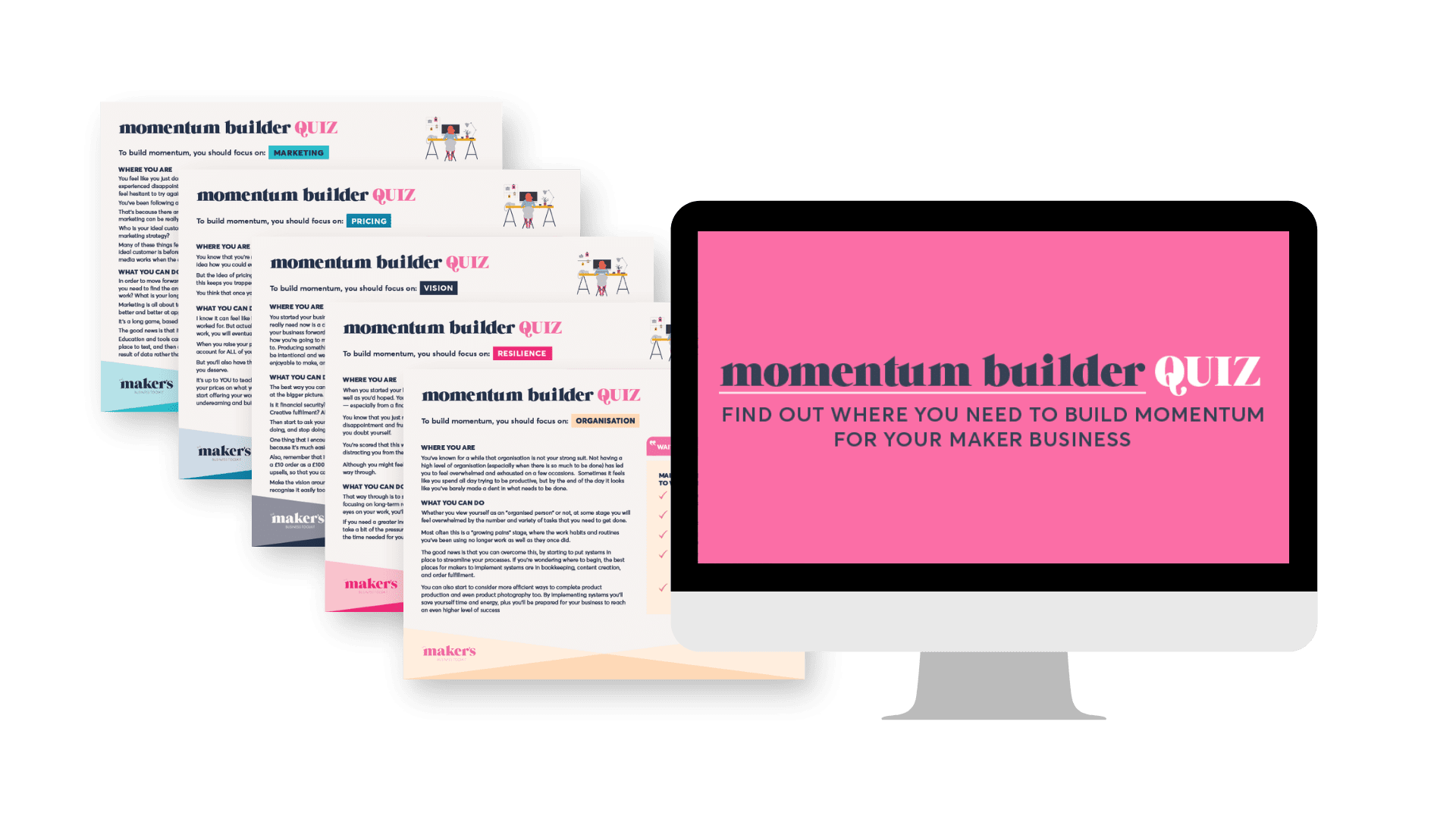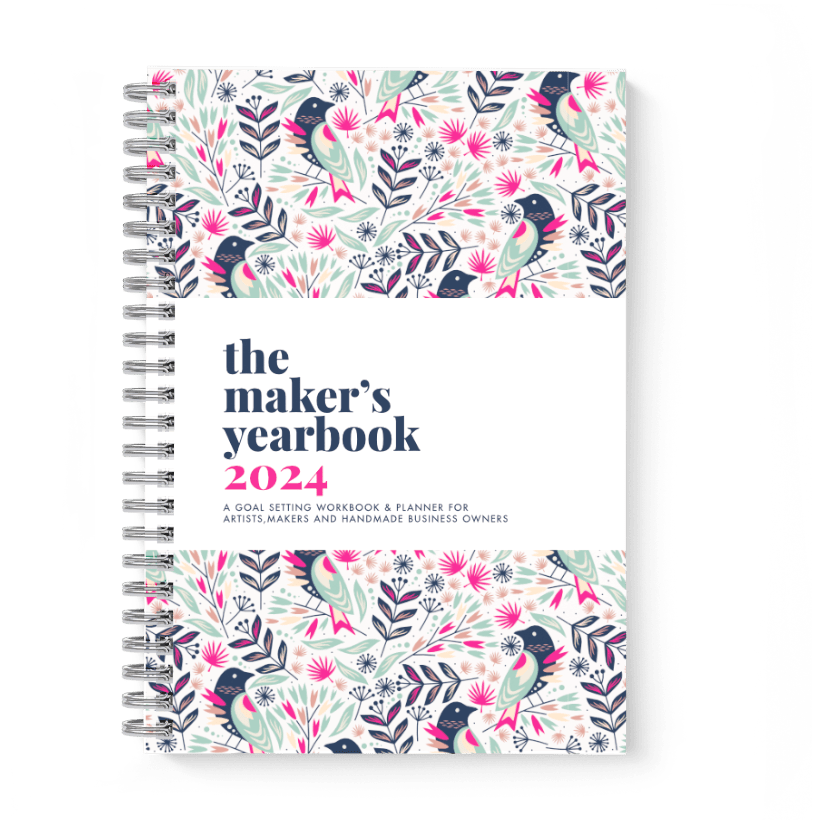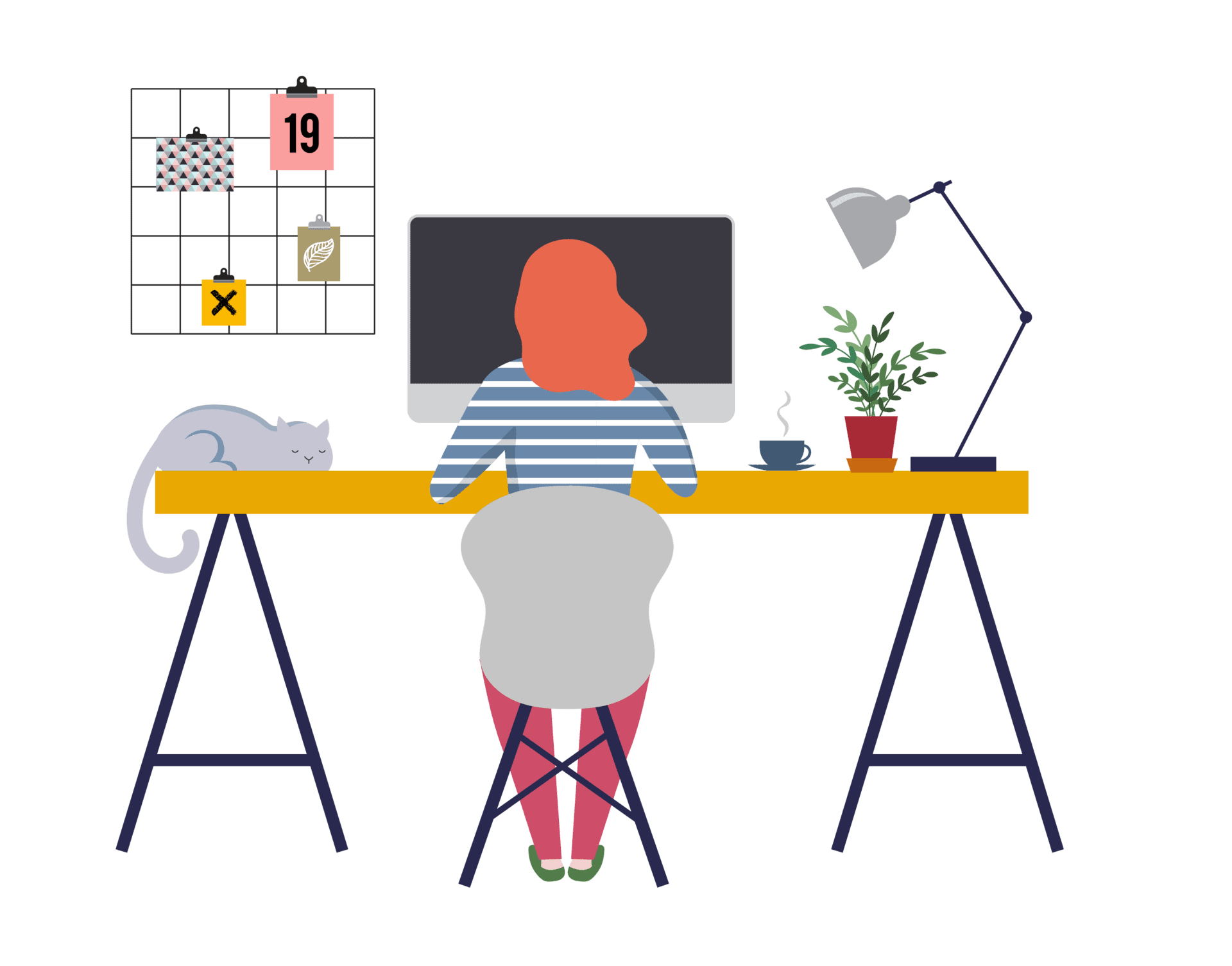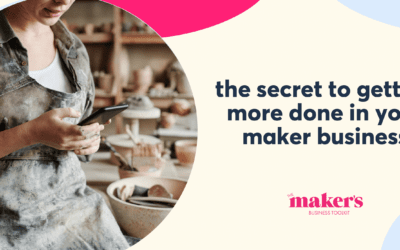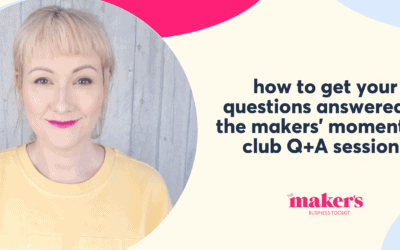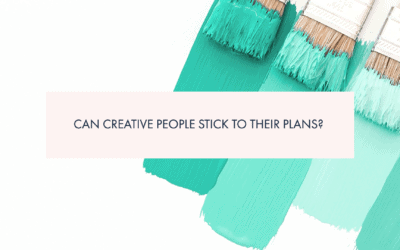Money.
It’s the lifeblood of our businesses. In fact, if we’re not making money we don’t actually have a business, we have a hobby.
But why do so many artists and makers agonise over money? Why do we struggle so much to charge enough to even meet our basic needs? Why do we consistently undervalue what we do?
Why do we hate talking about money? And why do so many of us feel that our prices are too high when the opposite is more likely?
In my previous life, I was a stockbroker in the City of London, so I spent a lot of time talking about money and thinking about money.
It was my job to help the people who run pension funds and insurance companies discover new companies to invest in, in order to make money for people’s retirement or to cover them in case of loss.
And those investments allowed these companies to expand, employ more people, research a potential life-changing drug, or create a game-changing piece of equipment like the jaws of life.
I also met CEOs and CFOs of lots of companies, mostly those in the American Midwest, often running businesses that had grown from small family affairs to companies listed on the New York Stock Exchange.
For the most part, they were passionate and decent and they understood the great responsibility they owed to their customers and their employees. Some weren’t and didn’t, and I met those ones too.
In the end, I decided that the job wasn’t for me. But when I left I took a great gift with me; an understanding of what money is and what money does.
Money is a tool to do what we want in the world.
If we want to do good things, if we want to build things, money helps us to do that. If we want to do bad things, if we want to spread fear and subjugate others, then money helps us to do that too.
But money itself doesn’t do any of these things. Money does not make people good or evil. Money doesn’t corrupt.
Money gives us the power and the freedom to make choices, but the choices are ours.
Unfortunately this is not how many of us see it.
For many of us, we have attached a lot of emotion to money. We may have absorbed unhealthy attitudes towards money from our friends, our family, the media and even complete strangers.
These emotions and the assumptions we make about what it means to have money and what it means not to have money can mean that we act in ways that sabotage our own financial success.
For example, have you ever experienced any of the following?
1. You are completely exhausted and can’t keep up with orders but still feel like you can’t raise your prices.
2. You’ve said, “rich people are …….”
3. You have commission clients who are never satisfied and you end up making endless revisions and eventually scrapping the project or giving them a massive discount.
4. You feel like you can’t say no when people ask for a discount.
5. You have said, “I’ll never make any money but I love what I do.”
6. You have wondered whether it is even possible for artists to make a living from selling their work.
These statements all imply associations about money that go beyond money simply being a tool for doing more of what we want to do in the world.
And it goes even deeper than that.
Take a moment to think about the history of money management in your family. Think about your parents and your grandparents.How was money handled within your family?
How was money handled within your family? What were conversations about money like?
For instance, in my family, my grandfather was an entrepreneur and when they were growing up my mother, her brother, and her sisters went on trips all over the world and drove around in fancy cars. Unfortunately, he was also a gambling addict and when he lost all of their money, my grandmother had to divorce him and work extremely hard to make sure they didn’t lose their home.
As you can imagine, the impact of this troubled history around money has filtered down through the family and into the lens through which I view the world.
Although I didn’t realise it and could never articulate it, somewhere deep down there was always a sense to me that men earned the money but they were careless with it. It was the role of women to manage the money and make sure it was carefully saved or invested. It never felt safe and comfortable to have money because you always had to be vigilant about losing it.
Of course, I would never have been able to express it in this way and I wouldn’t have understood that this is what was happening but, looking back on it now, it seems quite obvious.
And to this day, in my own business, I find it easier and more comfortable to do the tasks that relate to managing the money I have, rather than the tasks that relate to generating more sales.
In your life, you may have internalised different ideas about money and gender roles, or money and behaviour.
You may have come to believe that money changes people and it’s not possible to be both wealthy and a decent person.
You may have come to believe that it’s not possible to earn more than a certain amount of money (you’d be amazed how often this is the amount your parents made).
As artists and makers, we also have an added hurdle to cross because our culture bombards us with such unhelpful messages about art and money.
In fact, it’s not just art. It’s really about work and money.
The idea is that work should be something that feels hard.
Ever heard one of these?
“It’s called work for a reason.”
“Nobody really likes their job.”
“Keep your head down, work hard and you will be rewarded.”
These limiting beliefs create in all of us the idea that work has to feel hard in order to be valuable. Wouldn’t it follow then that we might believe those of us who spend our days doing something that feels like fun shouldn’t deserve to get paid the same as someone who works hard?
Maybe we’d even think that there was a choice between on the one hand working hard and being wealthy, and on the other hand doing something you love and being poor but happy.
Even we artists can believe that we’re somehow pulling a fast one on life if we get to make money from this.
So, is it really a surprise when we struggle with setting prices and generating a fair and reasonable income for ourselves?
Because what is fair and reasonable? Is it fair and reasonable to get paid for doing something you’d do for free?
Recognising and dealing with your assumptions about money is absolutely critical, not only for the success of your business, but also for your ability to feel joyful while building something for yourself, your family and the wider world.
So many of us start our small businesses because we want to help provide for our families, or because we have life circumstances that make it difficult for us to earn money in more traditional ways.
We are making creative choices about family finances or how work has to be. We need to be creative with our views around money too.
I’ll say it again. Money is a tool.
When your business is successful and makes money, you have the tools to make the world into the place you want it to be.
You can donate a portion of your profits to causes that matter to you. You can donate your time to arts-based charities. You can employ people and provide them with a decent wage and job security. You can make conscious and powerful choices about how and where you spend your money.
You can be a model for what an art business can be.
You can inspire others to believe that they too can build a business that works for their life circumstances.
And then perhaps instead of saying “You can’t make a living as an Artist” people will say “Art businesses make a valuable contribution to our economy, as well as to our mental and spiritual wellbeing.”
But none of it is possible unless you actually make money. While you’re struggling to keep your own head above water, you can’t help anyone else.
So, what are your blocks and assumptions around money? What is holding you back?
And what are you going to do to break it down and carry on regardless?





